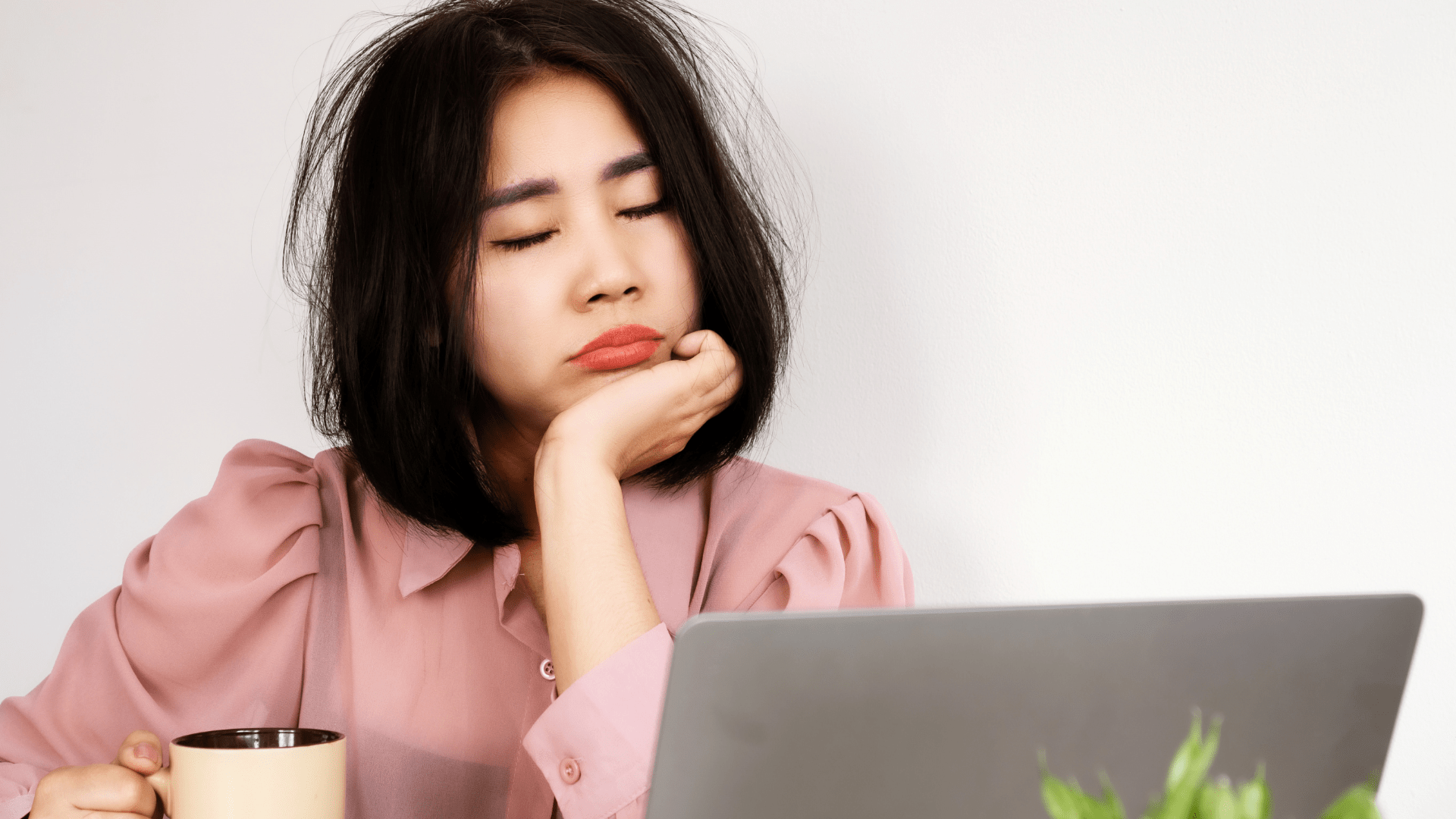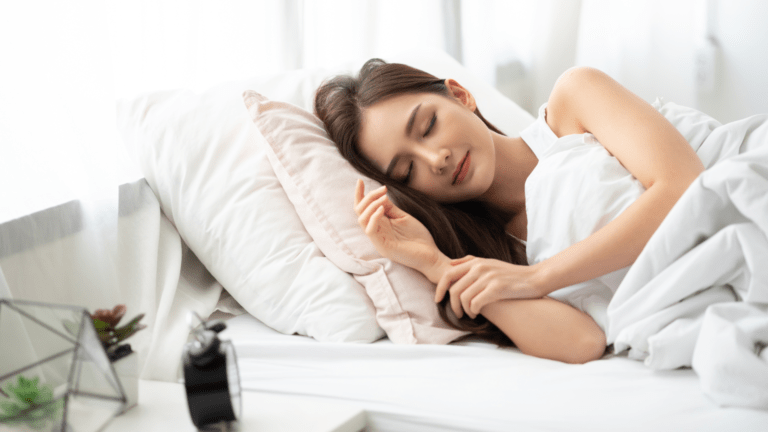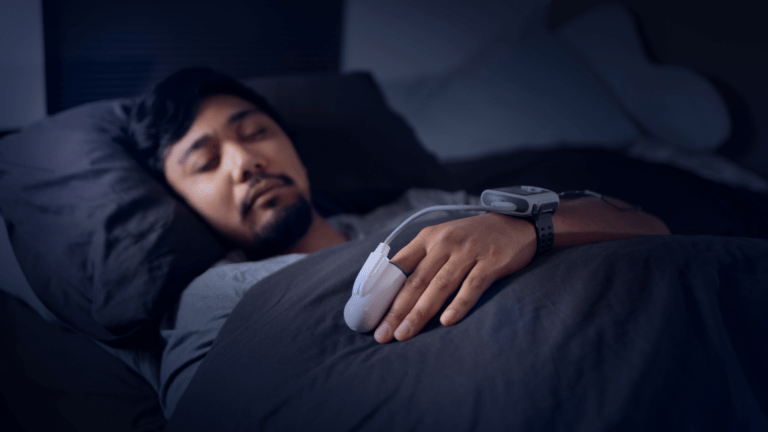You’ve probably heard it before: “Just get 8 hours of sleep, and you’ll feel great!” But if you’re here, you know that’s not always true. You could be sleeping for 8 hours (or even more) and still wake up tired, groggy, and asking yourself, “Why do I feel tired when I wake up?” This experience is more common than you think, and the amount of sleep alone isn’t always the solution. Let’s dive into the science and explore why sleeping for 8 hours still leaves you tired.
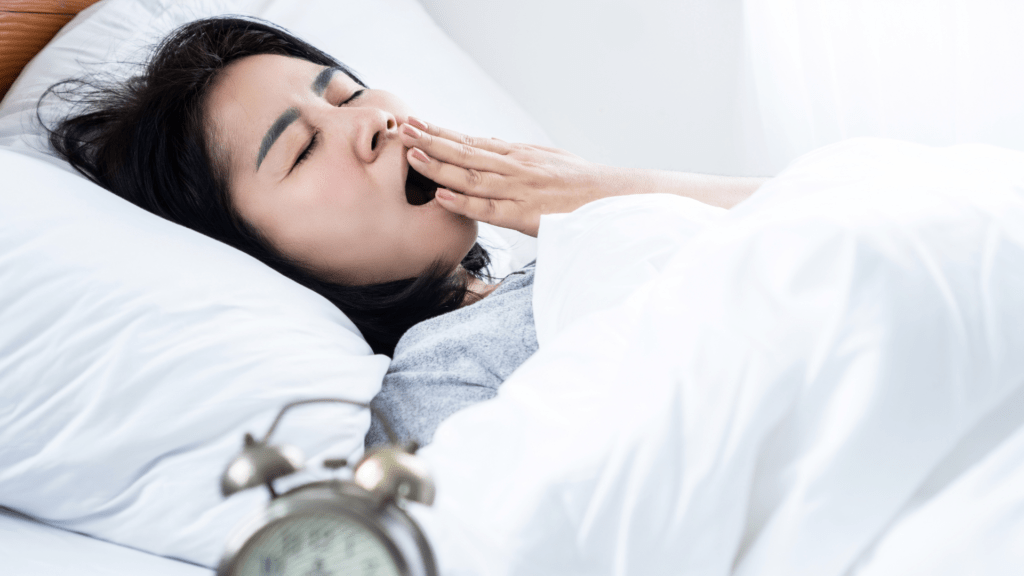
The Mystery Behind Morning Fatigue: Busting the Sleep Duration Myth
It’s easy to assume that getting 8 hours of sleep guarantees you’ll wake up refreshed. After all, that’s what most of us have been told since childhood. But the reality? Sleep quantity isn’t everything. If you’re waking up tired after 8 hours of sleep, you’re not alone. Many people wonder, “Why am I still tired after sleeping 8 hours?” or “Why do I wake up tired even though I slept enough?”
The answer lies in the quality of your sleep, not just the hours you spend in bed. You could be sleeping 8 hours and still feel tired if your sleep is disrupted, or your body isn’t cycling through the essential stages of sleep properly. Waking up with headaches is often a sign that something’s off with your sleep quality—whether it’s due to poor sleep posture, dehydration, or an undiagnosed condition like sleep apnea. This read will help you understand the underlying reasons behind your tiredness and headaches and give you actionable tips to fix them so you can wake up feeling refreshed and headache-free.
The Science of Sleep: Why 8 Hours Might Not Be Enough
You’ve got your 8 hours of sleep in. So why are you still feeling sluggish in the morning? It all boils down to understanding the science of sleep. It’s not just about how long you sleep but also how well you sleep. Let’s break it down:
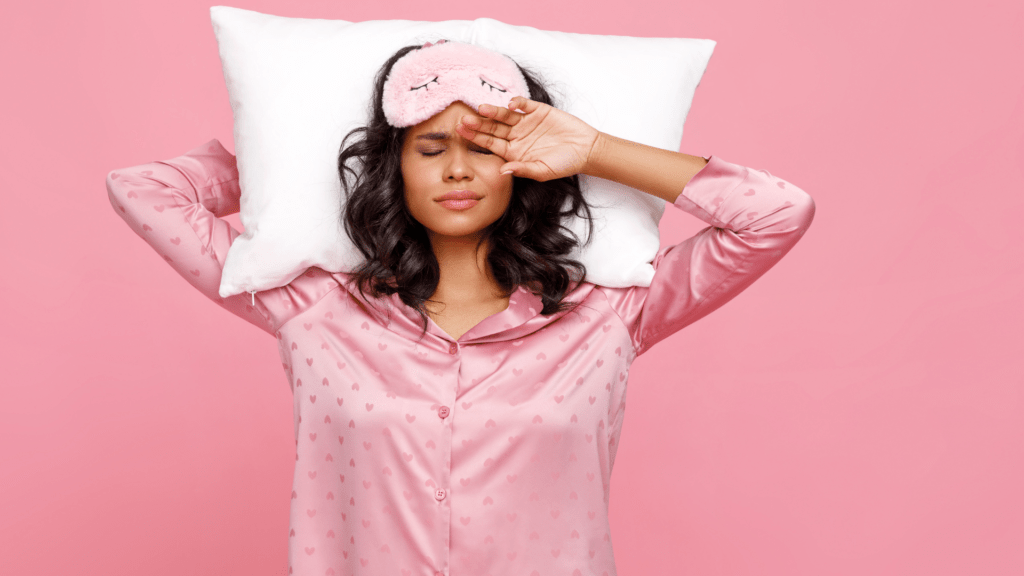
Sleep Cycles and Quality
When you sleep, your body cycles through different stages: light sleep, deep sleep, and REM (Rapid Eye Movement) sleep. Each stage serves a purpose, but deep sleep and REM sleep are crucial for feeling refreshed and energized. If your body isn’t spending enough time in these stages, you’re likely to feel tired even after a full night’s sleep.
For instance, you might be asking, “Why am I still sleepy after 8 hours of sleep?” The answer could be that you’re not getting enough deep sleep. This stage helps with physical restoration, while REM sleep is essential for mental rejuvenation. If either of these stages is shortened, you’re bound to wake up tired after 8 hours of sleep.
Sleep Debt: The Hidden Culprit
Another reason you’re still tired after 8 hours of sleep could be sleep debt. This happens when you consistently don’t get enough sleep over time. Your body accumulates this “debt,” and even though you’re sleeping 8 hours now, it’s not enough to repay the sleep you’ve lost.
Imagine your body is like a bank account. If you’re withdrawing more sleep than you’re depositing (i.e., not getting enough sleep for days or weeks), you’ll go into sleep debt. So even when you sleep 8 hours, it might not be enough to fully recharge your energy levels. This could explain why you’re still tired after sleeping all day or why you feel more tired when you sleep more. The quality and consistency of your sleep matter just as much as the quantity.
Interruptions During Sleep
Sometimes, you think you’re getting 8 hours of sleep, but in reality, your sleep is interrupted multiple times throughout the night. You might not even remember waking up, but brief disruptions can prevent your body from completing a full sleep cycle. This leaves you feeling groggy, even though you technically slept for 8 hours.
External factors like noise, light, or an uncomfortable mattress can be the reason you wake up tired after 8 hours of sleep. These interruptions can prevent you from entering the deep sleep and REM phases that your body needs for recovery, leading to that familiar feeling of being exhausted after 8 hours of sleep.
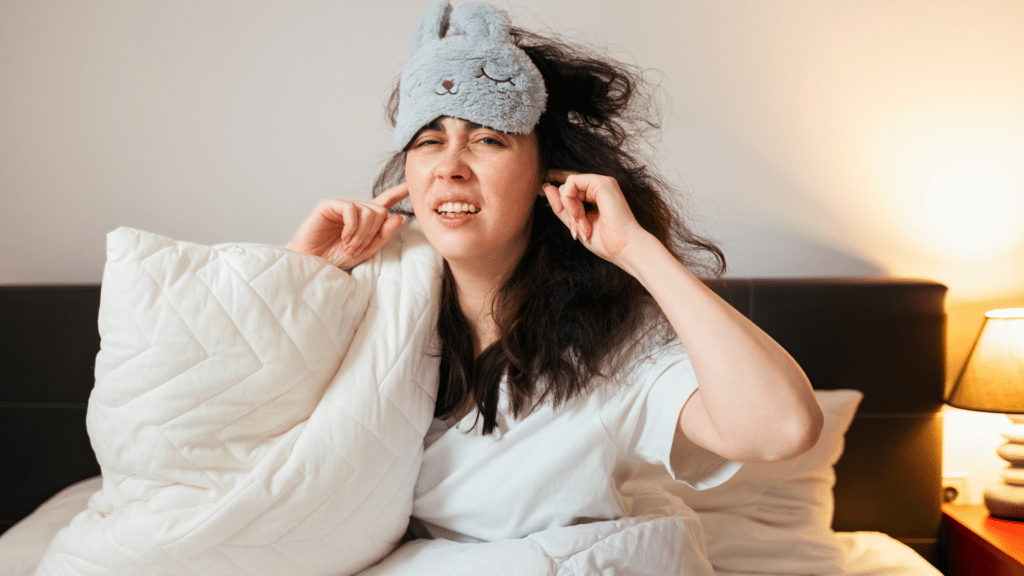
The Impact of Lifestyle Choices on Sleep Quality: Small Habits That Could Be Making You Tired
Most of us think that if we get 8 hours of sleep, we’ll feel perfectly rested. But here’s the thing: it’s not just sleep alone that determines how refreshed you feel in the morning. Your daily habits, from what you eat to how active you are, play a huge role in your sleep quality. So, if you’re still waking up tired after 8 hours of sleep, your lifestyle choices could be the culprit. Let’s break down some common habits that might be affecting your rest.
Caffeine and Diet: How What You Eat Impacts Your Sleep
We’ve all been there—reaching for a cup of coffee in the afternoon to get through the day. But did you know that caffeine, even consumed hours before bed, can interfere with your sleep? It might be why you wake up tired after 8 hours of sleep. Caffeine is a stimulant that can delay your sleep onset and reduce the amount of deep sleep you get. And it’s not just coffee—many sodas, teas, and even chocolate contain caffeine.
What you eat also matters. Heavy meals or spicy food late at night can cause indigestion and make it harder to fall into a deep sleep. This might explain why, despite getting your 8 hours of sleep, you’re still feeling tired in the morning. Opt for lighter meals in the evening and try to avoid eating too close to bedtime. This simple change could help you wake up feeling more refreshed.
Physical Activity: Too Little or Too Much Can Leave You Tired
Another factor that can impact your sleep is your activity level. Regular exercise is one of the best ways to improve sleep quality, but timing matters. Exercising too close to bedtime can keep you awake, making it harder to fall into a restful sleep. On the flip side, being too sedentary throughout the day can leave your body restless at night, leading to poor sleep and tiredness after 8 hours of sleep.
If you’re still asking yourself, “Why am I still tired after 8 hours of sleep?”, it might be worth looking at your daily activity levels. Try to incorporate moderate exercise earlier in the day—think morning walks or afternoon yoga sessions. This can help regulate your body’s natural sleep-wake cycle, allowing for more restful sleep.
Alcohol and Sleep: The False Friend of Rest
Many people believe that a nightcap can help them fall asleep faster. While it’s true that alcohol might make you feel drowsy initially, it can interfere with your sleep later in the night. Alcohol disrupts your sleep cycle and reduces the amount of REM sleep you get. REM sleep is vital for mental recovery, so if you’re not getting enough, it could explain why you’re tired even though you slept 8 hours.
Cutting back on alcohol, especially right before bed, can help improve your sleep quality. You may find that without that glass of wine, you sleep deeper and wake up feeling less groggy. So, if you’ve been waking up tired after 8 hours of sleep, reconsider that evening drink.
The Role of Mental and Emotional Health: Stress and Anxiety Can Disrupt Your Sleep
Another common misconception is that physical factors are the only things affecting our sleep quality. In reality, your mental and emotional state plays a massive role in how well you sleep. Stress, anxiety, and other mental health issues can leave you feeling tired after 8 hours of sleep because they prevent your brain from fully relaxing.
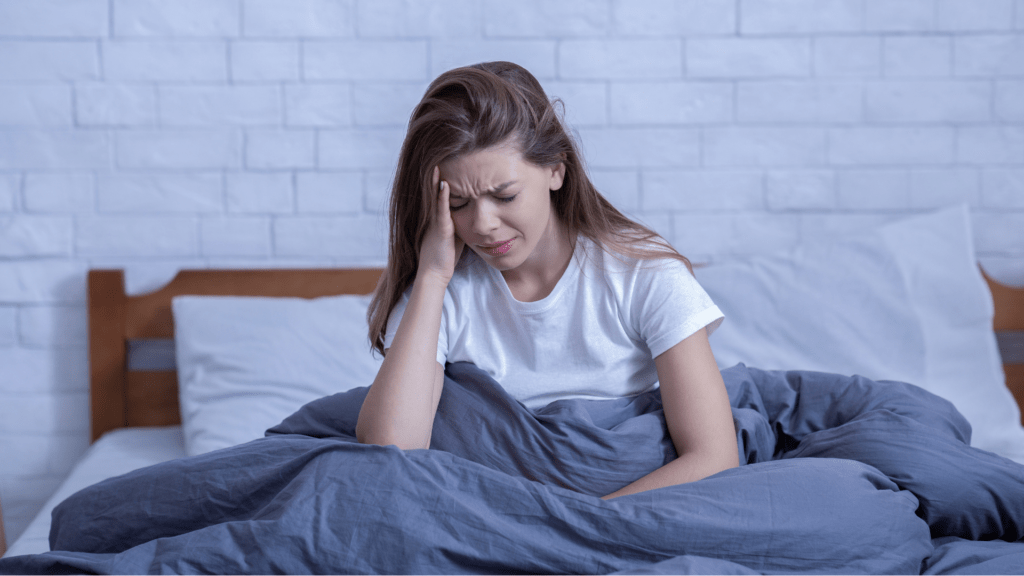
Stress: The Silent Sleep Disruptor
Ever lay in bed with your mind racing, thinking about all the things you need to do tomorrow? That’s stress working against your ability to fall asleep. When you’re stressed, your body produces more cortisol, which keeps you alert and awake. This can prevent you from entering deep sleep, even if you’re in bed for 8 hours. No wonder you wake up tired!
To combat this, try stress-relief techniques like meditation, deep breathing, or journaling before bed. These activities can help calm your mind and improve your chances of getting the deep sleep you need to feel refreshed. If you’re waking up tired after 8 hours of sleep, stress management could be the key to solving the problem.
Anxiety and Sleep: A Vicious Cycle
Anxiety often goes hand-in-hand with sleep problems. If you’re someone who deals with anxiety, you might find it harder to fall asleep or stay asleep through the night. The constant worrying can keep you awake, disrupt your sleep cycle, and leave you feeling tired after 8 hours of sleep.
But here’s the tricky part—poor sleep can also make anxiety worse. It’s a vicious cycle that can be hard to break. If anxiety is keeping you up at night, cognitive behavioral therapy (CBT), mindfulness, or speaking to a mental health professional can help you manage your anxiety and, in turn, improve your sleep quality.
Medical Conditions That Can Affect Your Sleep Quality: When Sleep Disorders Cause Constant Fatigue
Many people believe that if you’re tired after 8 hours of sleep, it must be because of lifestyle choices or stress. While these are common reasons, they’re not the only possibilities. Sometimes, the root cause can be medical. Sleep disorders or underlying health issues might be the reason why you feel tired even after sleeping 8 hours.
Sleep Apnea: A Hidden Sleep Stealer
One of the most common medical reasons people wake up tired after 8 hours of sleep is sleep apnea. This condition causes your breathing to stop and start repeatedly throughout the night. Each time this happens, your body briefly wakes up to restart your breathing, often without you realizing it. Even if you think you’ve slept for 8 hours, your body never gets the deep, restful sleep it needs. So, you wake up feeling exhausted.
People often overlook sleep apnea because they believe snoring or restless sleep is just a minor annoyance. However, it’s a serious condition that can impact your health and well-being. If you’ve been waking up tired and can’t figure out why, it might be worth talking to your doctor about sleep apnea. Treatments like CPAP machines or lifestyle changes can improve your sleep quality significantly.
Insomnia: When 8 Hours of Sleep Isn’t 8 Hours
Another possible explanation for waking up tired after 8 hours of sleep is insomnia. Insomnia can make it difficult to fall asleep, stay asleep, or wake up too early. Even though you’re in bed for 8 hours, the fragmented sleep patterns leave you feeling groggy and unrefreshed.
Many people assume insomnia just means not being able to fall asleep, but it also includes waking up multiple times during the night or waking up too early and being unable to fall back asleep. This can cause you to wake up feeling like you never slept at all, despite the clock showing you got your full 8 hours. Treatments for insomnia often include cognitive behavioral therapy, sleep hygiene improvements, and sometimes medication.
Restless Leg Syndrome: Disrupting Your Deep Sleep
Restless Leg Syndrome (RLS) is another condition that can prevent you from feeling rested after a full night’s sleep. RLS causes an uncontrollable urge to move your legs, especially when you’re lying down, which can make falling asleep or staying asleep a struggle. People with RLS often wake up frequently during the night, which affects the amount of deep sleep they get.
Even if you don’t remember waking up during the night, your body registers these disruptions, and you can wake up tired after 8 hours of sleep. If you’re experiencing these symptoms, consulting with a doctor can help manage the condition with medications or lifestyle changes.
Chronic Fatigue Syndrome: Fatigue Beyond Sleep
Chronic Fatigue Syndrome (CFS) is a more complex medical condition that can make you feel exhausted even after sleeping for long hours. Unlike sleep disorders that reduce sleep quality, CFS causes extreme tiredness that rest doesn’t improve. So, even if you sleep for 8 or more hours, you can still wake up feeling drained.
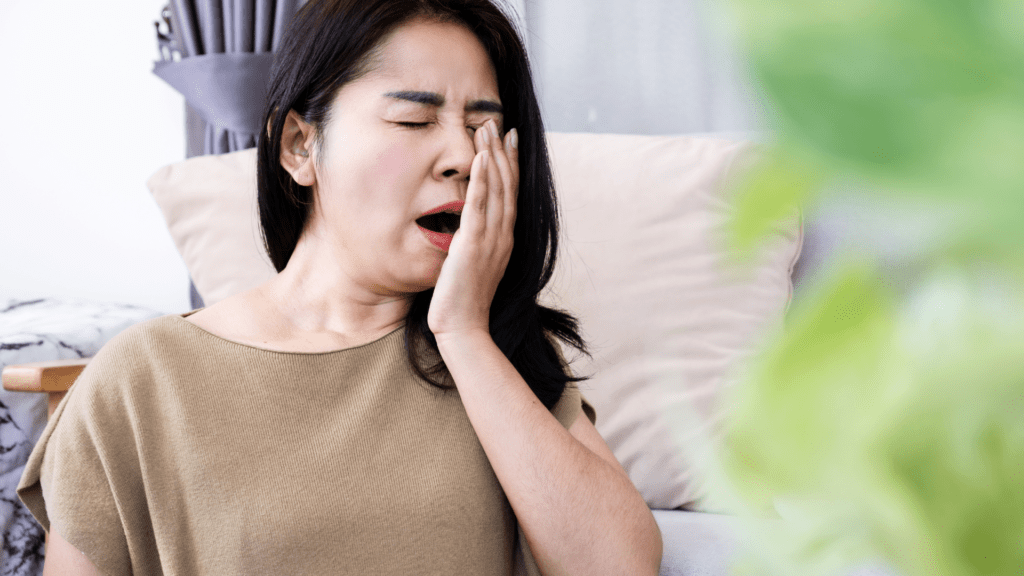
People with CFS often experience difficulty concentrating, muscle pain, and headaches in addition to fatigue. If you find yourself feeling tired all the time, despite what should be adequate sleep, you may want to explore this condition with your healthcare provider.
Hormonal Imbalances: When Your Body’s Signals Are Out of Whack
Hormonal imbalances, such as those caused by thyroid disorders or menopause, can also affect your sleep quality. For instance, hypothyroidism can slow down your metabolism and leave you feeling fatigued, even after getting plenty of sleep. Hormonal shifts during menopause or other life stages can also lead to night sweats, insomnia, or frequent waking, all of which prevent restorative sleep.
If you’re feeling tired after 8 hours of sleep, it might be helpful to check for any underlying hormonal issues. A blood test could reveal imbalances that are affecting your sleep quality.
